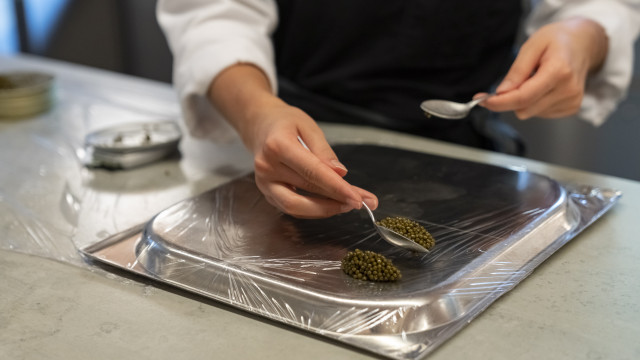Elite chefs in Germany are getting more and more recognition. This year, a record 340 restaurants can boast at least one star in the famous Michelin gastronomic guide.
The latest edition of the directory was presented in Hamburg last week. The increased number of starred restaurants has surprised the director of the Michelin guide for Germany and Switzerland Ralf Flinkenflugel, as the industry struggles with a shortage of skilled labor and rising costs of produce and energy. "We ourselves are amazed by the new record," he said.
Ten restaurants have been awarded the highest distinction "Michelin" and in 2024 they will be able to adorn themselves with three stars. Oedip Siegl's Upper Bavarian restaurant Ess:enz in Grassau, which only received two stars two years ago, has gone to the next level.
The remaining nine three-star restaurants are located in Berlin (Rutz), Baden-Württemberg (Bareiss and Schwarzwaldstube in Baiersbronn), Bavaria (Jan, in Munich), Hamburg (The Table), Lower Saxony (Aqua, in Wolfsburg), Rhineland- Palatinate (Waldhotel Sonnora in Dreis), Restaurant Schanz in Piesport and Saarland (Victor's Fine Dining by Christian Bau, in Perl).
The inspection team also rated 50 two-star restaurants - three of which are new - and 280 one-star top cuisines - 32 of which are new. The criteria include product quality, personal touch, value for money and consistent quality over the long term.
A total of 77 restaurants received a Green Star for their environmentally friendly and resource-saving gastronomy - 10 more than in 2023. But 27 kitchens had to give up one or more stars because they were closed, had a new concept or the quality of the meals offered deteriorated.
First published in France more than 100 years ago, the little red Michelin guide was intended to encourage more drivers to travel and thereby increase sales for the French tire company Michelin. The first Michelin stars were awarded in Germany in 1966/BGNES
340 German restaurants receive a Michelin star







